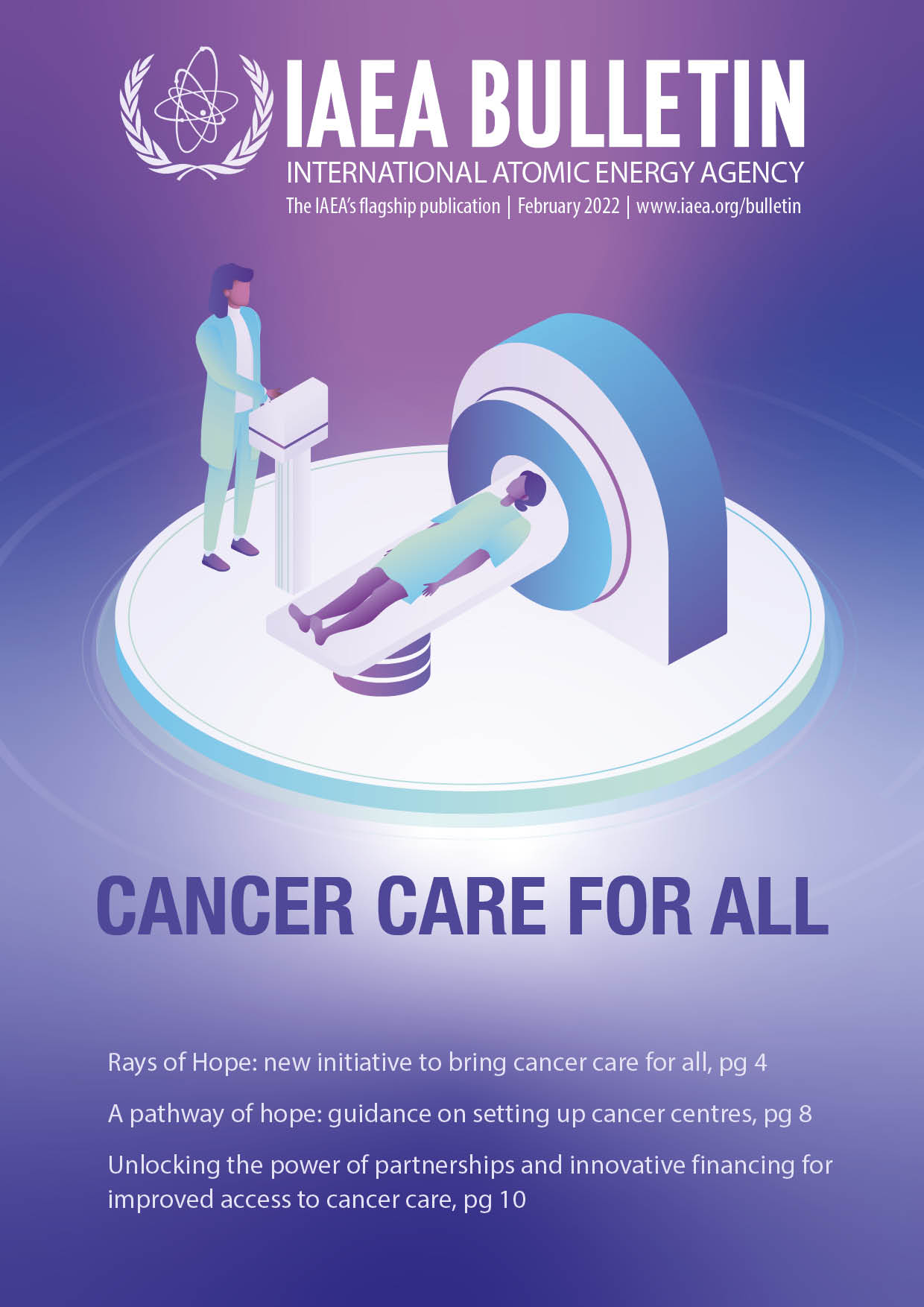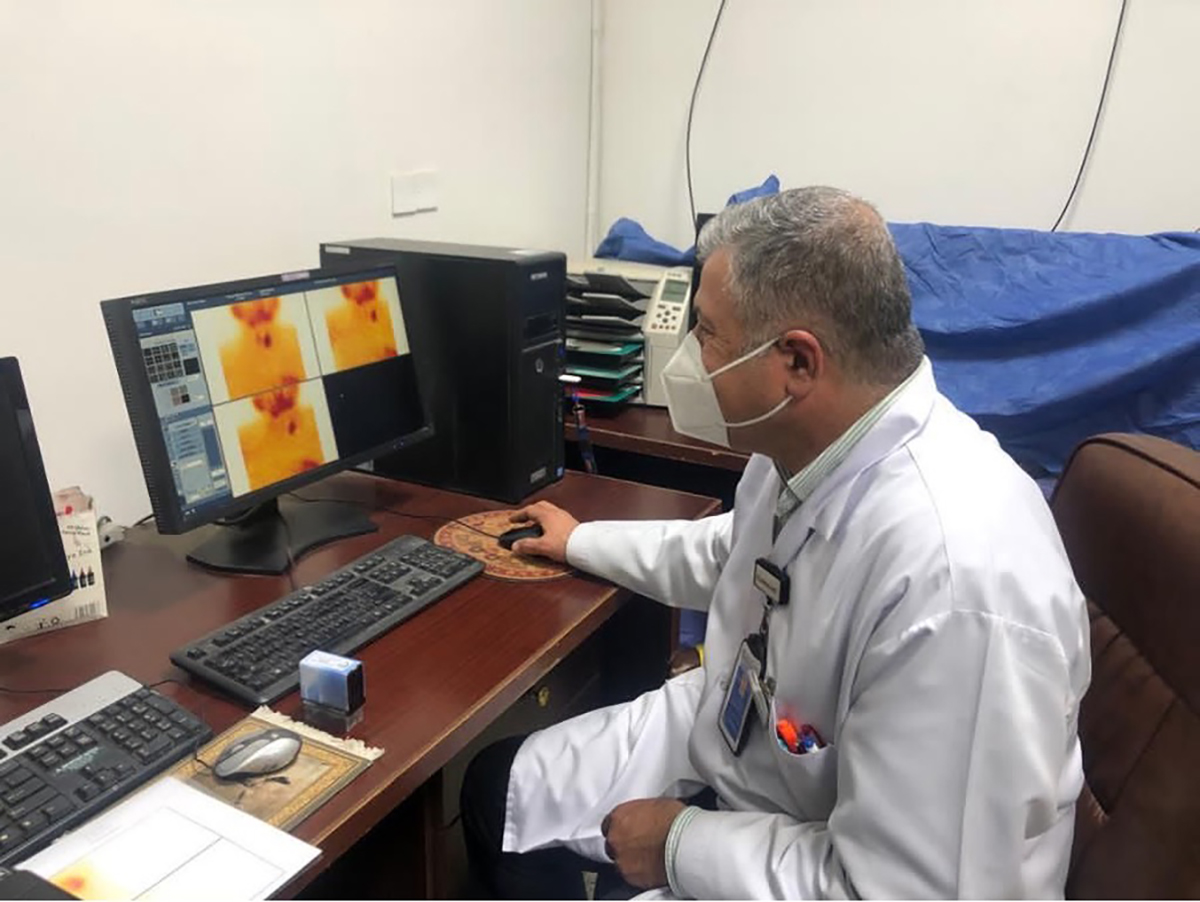When the IAEA began helping Zambia to formulate its national cancer control programme (NCCP) in 2021, radiation oncologist Kennedy Lishimpi joined experts from Egypt and South Africa, countries with advanced cancer control plans in place, to help draft his own country’s plan. Lishimpi, who serves as the Director and National Coordinator of Cancer Control Services in Zambia, is now paying it forward and leading a team of experts to help Sierra Leone with its own NCCP.
“The Zambian NCCP aims to reduce cancer incidence and is specific to the cancer burden of our country. The IAEA’s support has helped to shape the nation’s programme to build capacity for and transform cancer control in Zambia,” Lishimpi said. “Now we are able to contribute to Lesotho’s and Sierra Leone’s efforts and share our lessons learned.”
Global partnerships, including through South–South and triangular cooperation, are essential in fighting cancer and providing adequate treatment with sustainable solutions. South–South cooperation is the mutual exchange of knowledge and resources between and among countries in the Global South to meet development goals, while fostering self-reliance and ownership of activities. Triangular cooperation involves third parties, such as donor countries and organizations, that help facilitate South–South initiatives through funding and training.

